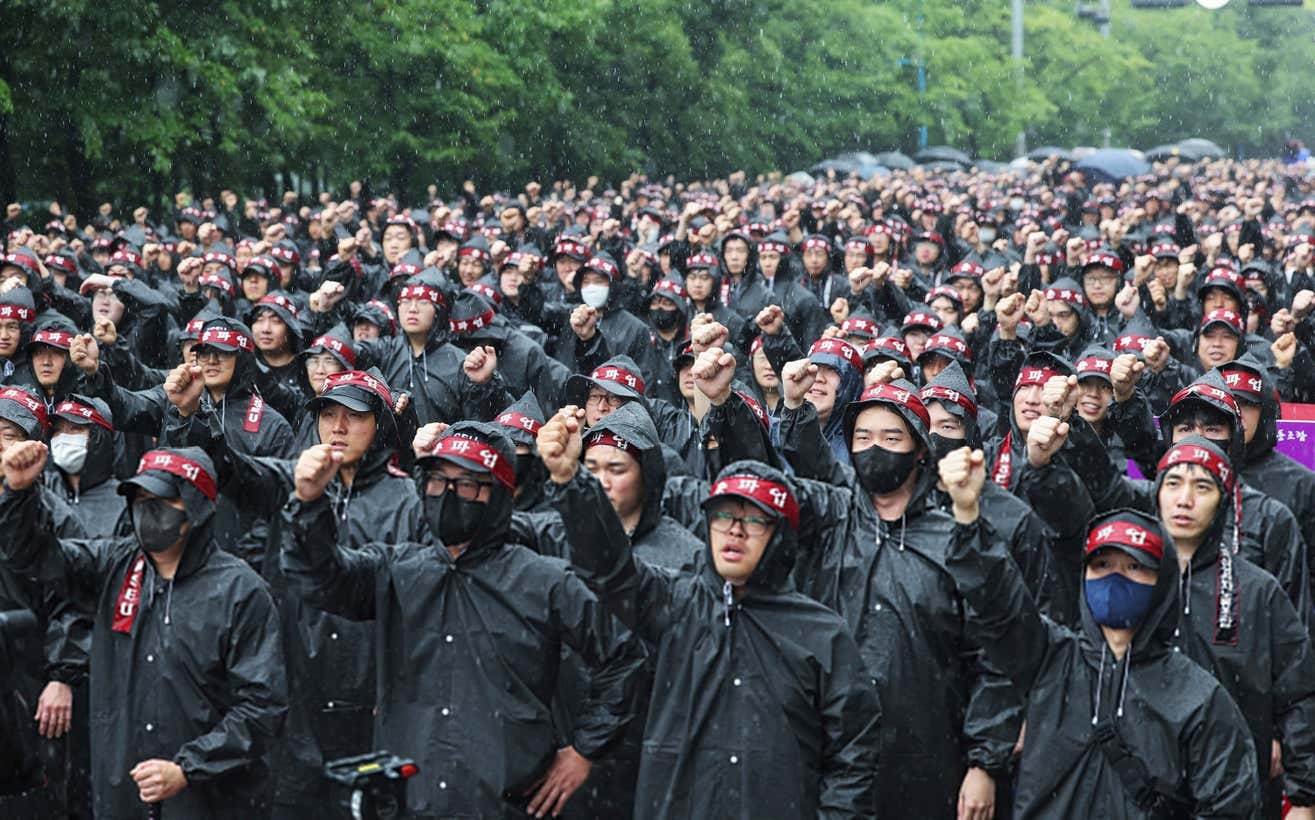Samsung Workers Go on Indefinite Strike
Defying Threats of Replacement, Thousands of South Korean Workers
Thousands of workers in South Korea at Samsung Electronics, the world’s largest memory chipmaker, declared an “indefinite strike” against the company’s refusal to dialogue and listen to their demands on the last day of their three-day strike on Wednesday 10 July.
In a statement, published on the website of the National Samsung Electronics Union (NSEU) which is spearheading the strike, the union told its members “don’t get tired” and continue the strike until further instructions are given.
The NSEU has around 30,000 members and represents 24% of all workers with Samsung Electronics. According to NSEU, over 6,540 workers have been participating in the different strike actions. Striking workers have held rallies in front of the factory gate on each day of the strike so far, seeking to send a message to the technology giant which has refused to listen to workers. The management even threatened to hire replacement workers if the strike does not end.
Workers affiliated to NSEU first launched their strike on Monday 8 July at Samsung electronics’ factory at Hwaseong, 45 kilometers from Seoul. NSEU launched the strike to further their demands of at least a 5.6% increase in the base wage for all workers, improved transparency in pay and compensation for members who are or had participated in the strikes. They are also demanding an annual one day paid vacation for all employees on its foundation day.
The NSEU had been engaged in negotiations with the Samsung management on these demands since January. It had already reduced its demand for a wage hike from 6.5% to 5.6% in order to seek a common ground in the negotiations. However, the company has stuck to its 5.1% annual raise in the wages as agreed with some of the workers earlier. Several rounds of talks were held before the union finally decided to take mass action.
NSEU observed a one day strike in June. The strike was the first ever strike in Samsung Electronics’ 55-year-long history in South Korea. Samsung has thus far denied that the series of strikes have had any impact on its production against the union’s claim that the production has been disrupted.
Meanwhile, around 60,000 members of Korea’s Metal Workers’ Union (KMWU) under the Korean Confederation of Trade Unions (KCTU) went on an eight hour strike on Wednesday 10 July, The Korean Times reported.
The strike was called to oppose the business friendly policies of the Yoon Suk Yeol government. The strike is a part of trade union’s attempts to support the passing of the Trade Union and Labour adjustment Act pending in the National Assembly. The bill, if passed, would make it difficult for the management to seek compensation from workers for strike actions.
Despite belonging to two different federations of trade unions in the country KMWU had extended its support to the NSEU’s strike call.




